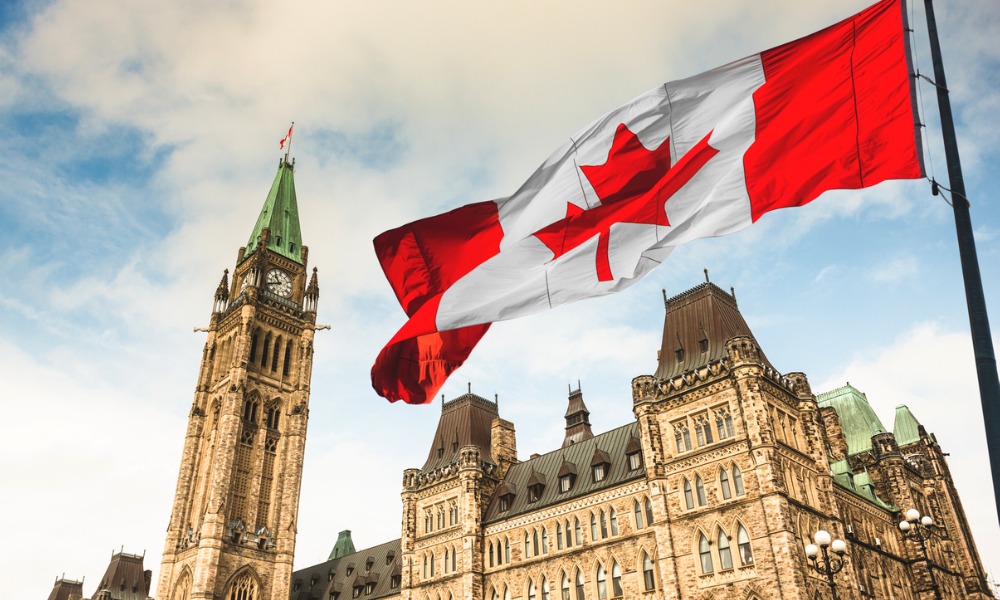New Zealand recently announced the leave – will Ontario follow?

Recently, New Zealand became the very first western country to announce paid bereavement leave for employees who suffered a miscarriage. This update follows years of campaigning from Labour Party MP Ginny Andersen and mental health support groups.
“We are fortunate enough to have many decent employers in this country who are all really allowing bereavement leave to be taken in the event of miscarriage or stillbirth,” added Andersen. “But there are some who are not. There are some who are making employees use up the sick leave at a time when they are dealing with extreme loss. And that is careless and that is wrong.”
The move was met with universal acclaim, effectively cementing New Zealand once again as one of the most forward thinking, people-centric, countries in the world. In the face of so much commendation, it begs the question; should Canada step up and follow suit?
Current bereavement leave
“An employee who has a miscarriage or stillbirth more than 17 weeks before her due date is not entitled to a pregnancy leave,” explained Lorenzo Lisi, partner at Aird & Berlis. “However, if an employee has a miscarriage or stillbirth within the 17- week period preceding the due date, she is eligible for pregnancy leave. The latest date for commencing the leave in that case is the date of the miscarriage or stillbirth.”
The pregnancy leave of an employee who has a miscarriage or stillbirth ends on the date that is the later of:
- 17 weeks after the leave began or;
- six weeks after the stillbirth or miscarriage.
How may weeks are given are calculated on a case by case basis – delineated here by the Ontario government. “This means that the pregnancy leave of an employee who has a stillbirth or miscarriage will be at least 17 weeks long,” continued Lisi. “In some cases, it may be longer.”
Read more: Hybrid models: Are your frontline workers feeling left behind?
But what would bereavement leave look like in Canada? And how should HR leaders even approach the situation?
Benefits strategies
The first aspect to consider is how this leave would fit into your existing benefits plans – or if you should consider switching plan providers.
“Employers are encouraged to consistently review their benefits offerings as these impact employment branding and competitiveness in the marketplace,” added Dr Melanie Peacock, associate professor of HR at Mount Royal University. “A key consideration is affordability. Enhanced bereavement leave will likely be difficult to cost out. Data is sparse as many employees likely encountered this type of loss (i.e., miscarriage) and never reported it or shared it with their employers.”
Read more: The pandemic is taking a toll on women's career growth
Leading with compassion
Any sort of bereavement leave is an emotive topic – but with miscarriage leave, it’s especially raw and painful. As such, don’t forget to lead with compassion and care when you’re making decisions. Yes, it might mean that you have to dip into your profit margins, but surely it’s worth it to show your people just how much you care?
“Any and all actions that employers can take to enhance compassion and show that they genuinely care about their employees is well founded,” continued Peacock. “Bereavement leave, caused by experience of miscarriage, is not something employees would want to use or would take advantage of. This is a serious issue/loss and needs to be treated as such. Further, by offering this type of leave the stigma around this type of loss would be lessened, enabling employees to feel better supported, obtain the correct support (both mentally and physically) and overall advance our society.
“In essence, what employers give to their employees (compassion, kindness, reasonable accommodations) will be returned to them ten-fold through enhanced productivity, loyalty and commitment to organizational outcomes. All this in mind, I encourage employers to review their overall bereavement leave policy, not just in relation to one specific issue. Grief is a difficult matter and yet in corporate settings we try to put it in a box or timeline. Are there ways that organizations can and should offer more flexibility in their entire approach to helping employees who are experiencing bereavement? These are strategic and operational questions that I encourage all employers to continually examine.”
To hear more about how you can enhance your current bereavement leave policies, check out HRD’s recent feature on the topic here.








